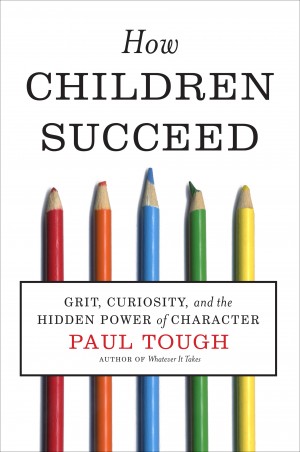By Jennie Rose
In his new book How Children Succeed: Grit, Curiosity, and the Hidden Power of Character, author Paul Tough makes the case that persistence and grit are the biggest indicators of student success. Being resilient against failure, he says, is the fundamental quality we should be teaching kids, and he gives examples of where that's being done.
Dominic Randolph, the headmaster at the elite Riverdale Country School in the Bronx, New York, who believes students don’t know how to fail, is one of the sources in Tough’s book who has set out on a road to change an “impoverished view” of learning. Rather than producing students adept at “gaming” the system, “we have got to change the educational system to think about different outcomes and different capacities,” he says.
Another primary source in the book is David Levin, co-founder of the charter KIPP Academy, who developed a student character report card to cultivate this resilience and self control in his students. With Levin’s KIPP Academy as a case study, Tough tracks persistence among low-income kids who aim to go to college, taking special note of those who have the skill in
engaging with people who are different from them, or what educators refer to as “code switching.” Tough's research indicates that students who possess this “code switching” ability, as well as self control, optimism, and curiosity, also show an ability to recover from setbacks.
At KIPP Academy, kids wear school spirit sweatshirts with pro self-control slogans like “Don’t Eat the Marshmallow!”-- a nod to Walter Mischel’s renowned cognitive psychology study on self control. But it's hard to teach kids how to be grateful, how to demonstrate self control, so KIPP teachers use character language to show kids how to slow them down, to understand the mistakes they're making.



